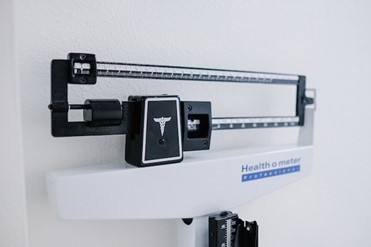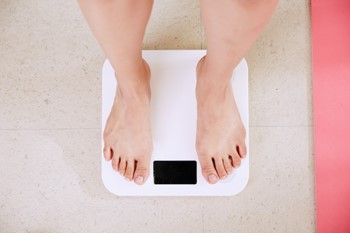
A journey begins with a single step, especially if that journey is losing weight.
Planning to lose at least 100 pounds is a daunting task. Often, long-held lifestyles, exercise, and eating habits must be significantly adjusted and then sustained.
Robert Bremer of Ohio reports that the National Institutes of Health recently looked at 29 weight loss studies and found that over 50% of any weight lost through a diet is gained back in as little as two years. After five years, that number jumps to over 80% regained weight.
While attempting to lose any amount of weight is challenging, shooting for shedding 100 pounds takes very serious commitment and discipline. The good news is that it can be done.
Target Calorie Intake
Any type of weight loss requires that someone burns more calories than they take in.
Tracking calorie intake often helps those who have set a specific time frame for dropping 100 pounds and losing it faster. One study found that over 7 more pounds may be lost each year if a weight loss strategy included calorie tracking compared to those which did not.
One can even determine exactly how many calories to consume to lose weight. Pairing controlled calorie intake with consistent exercise makes achieving that goal move even faster.
Pinpoint a Preferred Exercise Method
Even without a 100-pound weight loss goal, regular exercise is essential for overall physical health and well-being.
Those not used to exercise may want to start with walking frequently and then moving on to jogging and eventually running Cardio not only strengthens heart health but is particularly effective for burning calories and fat — even potentially on its own as a weight loss strategy.
Lifting weights and other forms of resistance training can help burn calories faster and develop muscle mass as it increases metabolism. A doctor is a good person to consult before launching an exercise regimen.

Get Help From a Dietician
Eating habits are very hard to break, so guidance from a professional dietician may be essential if a weight loss goal is lofty.
Registered dieticians are especially effective in helping someone get a weight loss journey started. They will learn more about past eating habits and current weight goals to tailor a diet plan that is manageable for the short- and long-term.
Stay Realistic
Everyone who wants to lose weight wants to lose it fast. That is likely not possible with goals like losing 100 pounds — losing too much weight too fast can be dangerous.
More often than not, a strategy that focuses on losing weight a few pounds at a time is more effective than rapid loss and even makes it easy to maintain weight loss.
Instead, expect that safely losing 100 pounds may take six months to a year or more. Losing 1-2 pounds of fat or shooting for dropping 1% of body weight a week is often recommended.
However, some strategies can lead to quicker weight loss, such as a diet that is low in carbohydrates that lowers water weight.






